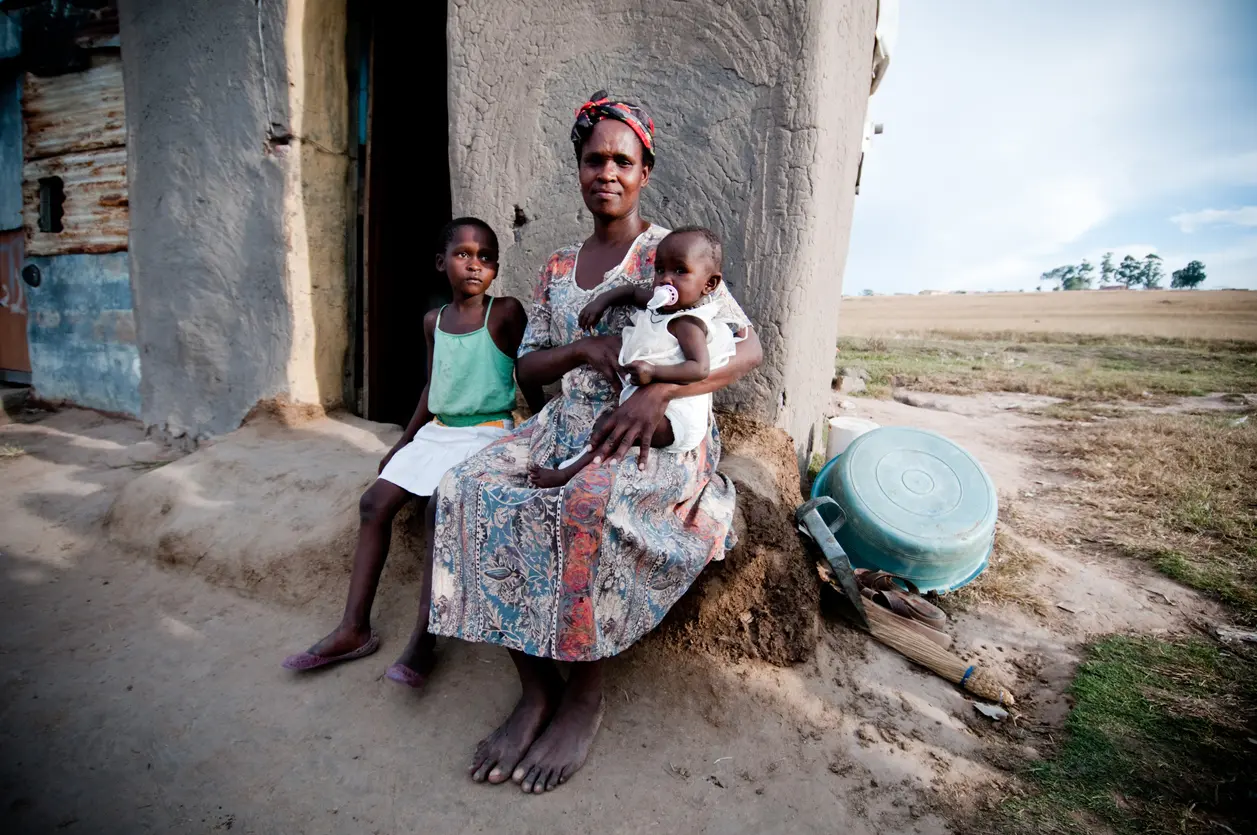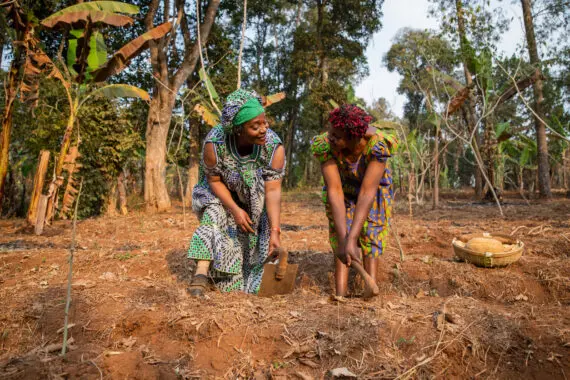Bread for the World frequently mentions the “1,000 Days” human nutrition window, which lasts from pregnancy to the second birthday, because this is by far the most important time for people to consume essential nutrients. Children who are malnourished during this stage of life sometimes do not survive, and many of those who do survive may suffer permanent damage to their physical and cognitive development. This makes the 1,000 Days a top priority in efforts by Bread members and other anti-hunger advocates to end hunger and malnutrition.
In encouraging news, efforts to help every newborn not only survive, but reach kindergarten age in good health and prepared to expand his or her world to school and community, have brought impressive results over the past generation. In 1990, 10 out of 11 babies born, about 90 percent, reached their fifth birthday, while in 2021, 25 out of 26, about 95 percent, reached this milestone. Moreover, progress sped up as time went on—the death rate fell more than twice as quickly during the decade 2000-2010 as during the 1990s. Even the most recent data, which includes the global pandemic years 2020 and 2021, shows continued progress.
Nonetheless, the world still loses far too many young children to preventable causes. Nearly half of all deaths in children under 5 can be attributed to malnutrition, which claims the lives of up to 3 million children every year. Each is a unique and irreplaceable person made in the image of God.
The record of significant global progress on “child survival” rates can also mask the very difficult living conditions that many young children endure. In 2022, there were more hunger emergencies, and those emergencies were more severe, than the world had been seen in many years. Five countries had famine conditions at some point during the year, compared with four famines total in the previous two decades. By definition, famine means dire conditions as measured by heartbreaking statistics, including an acute malnutrition rate of 30 percent or higher. Babies and toddlers caught in hunger emergencies should be a top priority for humanitarian relief efforts since if they are malnourished now, they cannot make up lost ground when they are older.
As some of the main causes of childhood death begin to be resolved, it is becoming more important to focus on areas that may not have received a lot of attention earlier, but which are now responsible for an increasing share of preventable deaths.
One of these is neonatal mortality, meaning death within the first four weeks after birth. UNICEF’s report Every Child Alive: The Urgent Need to End Newborn Deaths lists several causes and recommends solutions.
Improving the status of women, particularly their access to education and their ability to make decisions within the family, is important to reducing death and serious illness among newborns. Research findings indicate that a significant amount of the risk that children will be stunted at age 2 is due to conditions that are in place before they are born. This means that children’s futures depend in large part on whether pregnant women are in good health, have access to nutritious food, and receive essential health care, including at least four prenatal checkups and skilled care during childbirth and the immediate postnatal period.
Researchers also identified other factors, largely beyond the control of mothers, that affect children’s futures. Both babies who are born prematurely, and those who are small for their gestational age, face a more difficult start in life and are less likely to survive infancy. This is because a baby’s weight and length at birth are important determinants of her health in early childhood. Some women are too short, even as adults, to safely carry a pregnancy to term and give birth. The infants of girls who have not reached maturity themselves are also at higher risk. Babies whose mothers are younger than 15 are at highest risk, but those born to mothers who are 18 or 19 are also at higher risk than those born to women in their twenties.
Some actions we may be more familiar with, such as exclusive breastfeeding, supplementing vital micronutrients such as iron and zinc, and vaccination against childhood diseases, were also found to be essential to children’s lives and health. These interventions save lives every day and are especially critical to young children living through hunger crises with their parents.
Michele Learner is managing editor, Policy and Research Institute, with Bread for the World.



